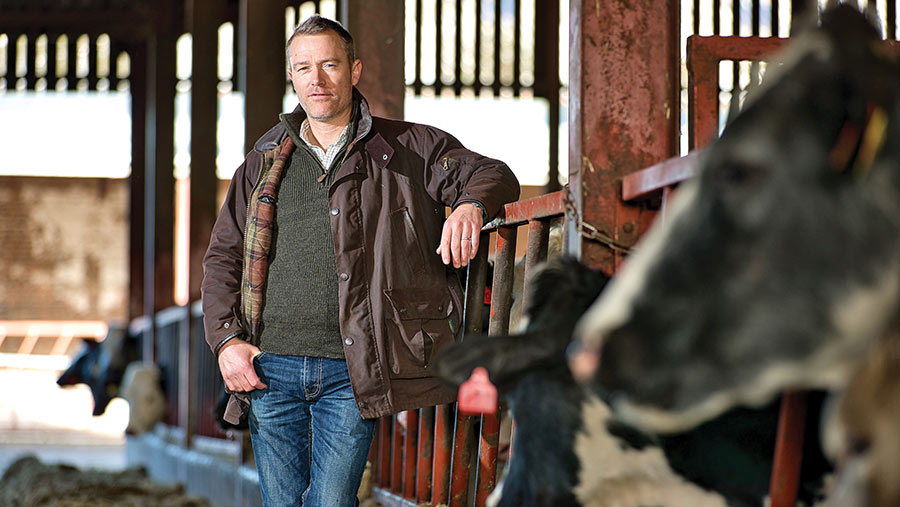Will’s World: We need to talk about mental health sustainability
 © Richard Stanton
© Richard Stanton On occasion, I get asked to speak at events, and while I’m always extremely flattered, I’m also never sure that it’s a good thing.
My lifelong battle with shyness and social anxiety does tend to get in the way a bit.
I therefore rarely sleep in the run-up to events, worrying greatly that I’ll let the organisers down by mumbling nervously into my notes, or that I’ll go off on a tangent and start boring on about some obscure historical incident.
(What, you don’t want to hear about The Rebecca Riots, which took place in west and mid-Wales between 1839 and 1843 and saw local farmers and agricultural workers protest against cripplingly high levels of taxation?)
See also: Bovine TB: Farmers and vets suffer mental health toll
Yarn in a Barn
But because I’m notoriously bad at saying “no” to things (as evidenced by having four children), and more pertinently in this case, mental health is a subject very close to my heart, I found myself heading down to Brecon recently to talk at one of the Farming Community Network’s excellent Yarn in a Barn initiatives.
These provide social opportunities for farming families to get together, while at the same time addressing some difficult and challenging subjects.
I’m a huge admirer of the various farming mental health and wellbeing charities that we’re so lucky to have in this country, and especially the people who work for them and the volunteers who give up their time to provide support.
They really are the angels who walk among us, and I can’t imagine how many people in our community they’ve helped, and how many lives they’ve saved over the years.
I’d argue strongly that they’ve never been more needed than they are now, too.
Despite it being advertised as “an evening with Will Evans” – a sure-fire way to make folks stay at home, if you ask me – I was pleasantly surprised on arrival to see a room full of people of all ages from throughout the local area.
Then I remembered that there was free food on offer, which, as we all know, is a sure-fire way to get farmers to turn up to anything, and was almost certainly the reason so many of them were there. Very nice it was too.
A problem shared
I don’t find it particularly easy to talk about my experiences with depression, but after coming to terms with it, I’m happy to do so.
I felt so lost and lonely for the longest time, and that I was the only person who’d ever felt like that.
The loss of all perspective is hard to explain, and even harder to understand.
So if me talking about it, or indeed writing about it here, can help someone else realise that they’re not alone and they can get better, then maybe something good can come out of something bad.
Nevertheless, I’m always apprehensive about how people will respond. I needn’t have been, though.
After I’d rambled on for my bit, we had a brilliant discussion about some of the issues that are contributing towards the current mental health crisis we’re seeing in agriculture.
Among them, the ever increasing levels of red tape and regulation seemed to be mentioned the most.
Many farmers felt completely overwhelmed with having to cope with that on top of their everyday work, and often by themselves, too.
As governments and organisations queue up to throw the word “sustainable” at us at every opportunity, one thing truly isn’t sustainable: the current situation in farming and food production.
I wonder if they’ll realise that before it’s too late.

